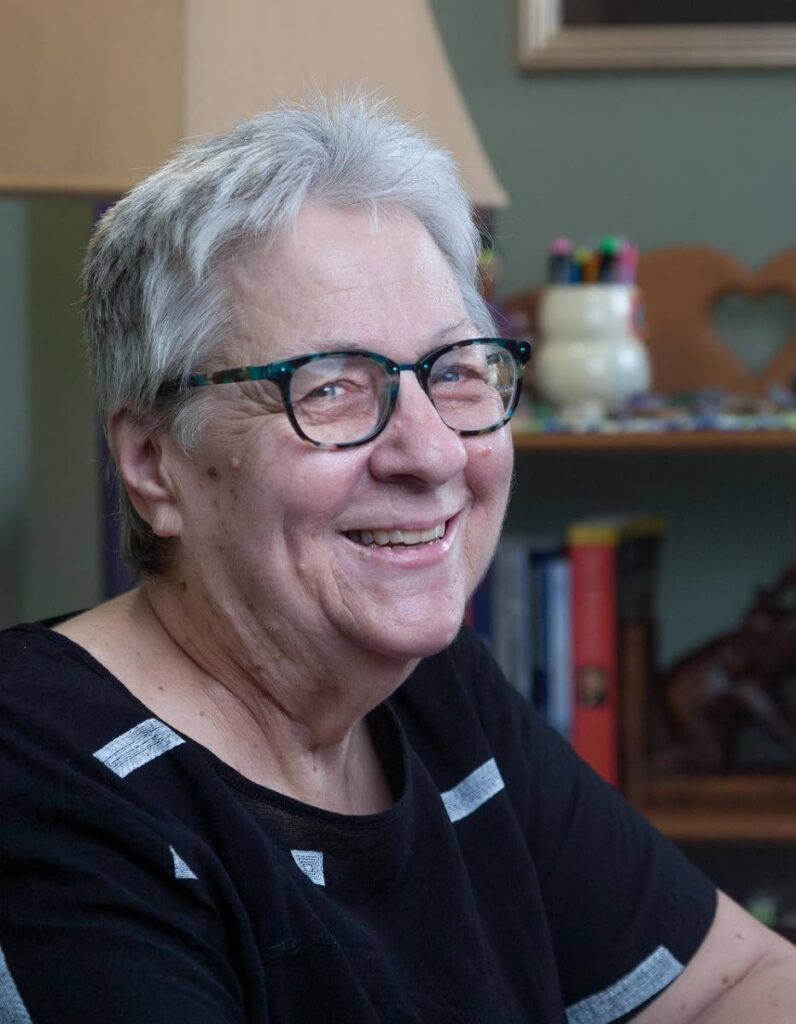My encounters with Panday

Debbie Jacob
IN 40 YEARS of living in Trinidad, I had only two encounters – both in airports – with the late prime minister Basdeo Panday. But I heard his name nearly every day from 1983-1987, when I lived among some of his most loyal supporters in central Trinidad.
My first encounter came when Express editor Owen Baptiste tried turning me into a news reporter and gave me the assignment of accompanying investigative reporter Camini Marajh to Piarco Airport to meet Panday as he returned to Trinidad. Numerous rumours claimed he would be arrested on landing here.
It didn’t happen. Calm and dignified, Panday silently sat in the back seat of his car and studied a Hindi grammar book. Camini and I squeezed in next to him.
That gave me a Panday story to rival those I listened to in Robert Trace, Warrenville, a small village carved out of a cane field between Caroni and Cunupia. The smell of curry and the sound of Bollywood movie tracks wafted through the air. A short walk to the old Southern Main Road revealed a mosque, temple and Presbyterian church.
Elderly Indian women congregated under the board house on stilts where I lived with Alma “Moi” Jacob, the mother of my friend Pam, renowned now for her restaurant, Pam’s Kitchen, in Seattle. Sitting on wooden benches made from plywood, the last of the indentured servants or daughters of indentured servants exchanged stories about who Panday had danced with at the latest party tied to the politics of the United National Congress (UNC).
These women – all widows – had once toiled in cane fields visible from our gallery. Acka, Moi’s sister, led conversations in creolised Bhojpuri Hindi. On days when Acka failed to appear at our door we never locked, we knew she was travelling around the country to attend Hindu prayers and parties. This was how she had dealt with grief after her only child, a son, was chopped to death.
Acka’s return brought stories of “dance like peas” and reports on Panday, always known best as the president of the All Trinidad Sugar and General Workers' Trade Union. These women, representing an important part of our history, recalled how Panday got better wages and improved working conditions for them.
Whenever elections rolled around, they asked, “What is Panday’s symbol?” They wanted to make sure the rising sun still represented Panday’s party. With great glee they displayed the red ink on their index fingers to prove they had voted.
Panday was their hero. He provided hope for a better future, bettered their standard of living, appreciated their work, and treated them with respect. Panday had an electrifying presence wherever he went. Fearless and charismatic, he aroused passionate support from his followers.
When he lived in England, Panday acted in TV and movie dramas, but when he returned to Trinidad and Tobago, he turned this country into his own stage. His passionate speeches aroused support. He challenged political opponents but never lost his softer side that relegated the old Indian women I knew to historical icons. He valued history.
My last encounter with Panday took place six weeks ago on November 30, 2023, in Miami Airport. Panday was returning home from a medical check-up. Abbegail Nandalal of the Consulate General of TT, Miami, spotted the Pandays at the Caribbean Airlines ticket counter and asked why they were standing in an "ordinary" line. Panday’s wife Oma said, “We always do. We don’t make any fuss or ask for any special treatment.”
Of course, Panday couldn’t blend into the crowd. That broad, perpetual smile gave him away. A steady stream of people thanked him for projects he had completed while he was prime minister. Some asked to take a picture with him. He obliged. Uncharacteristically, I asked for a picture with Panday too.
Nandalal arranged the proper protocol for a former prime minister. When we finally arrived at Piarco Airport, Zahra Ali, who had accompanied me to Miami for a literary and cultural event sponsored by the TT consulate general of Miami, said, “Mr and Mrs Panday are waiting in the duty-free area to see that you got off the plane OK.”
I thanked the Pandays for their concern. Still smiling, Panday disappeared into the crowd. I thought about how he had inspired and represented the elderly women of Robert Trace who admired him, and the trail of smiles he had evoked across this country.
RIP, prime minister Panday. So many of us will remember you with a smile.


Comments
"My encounters with Panday"